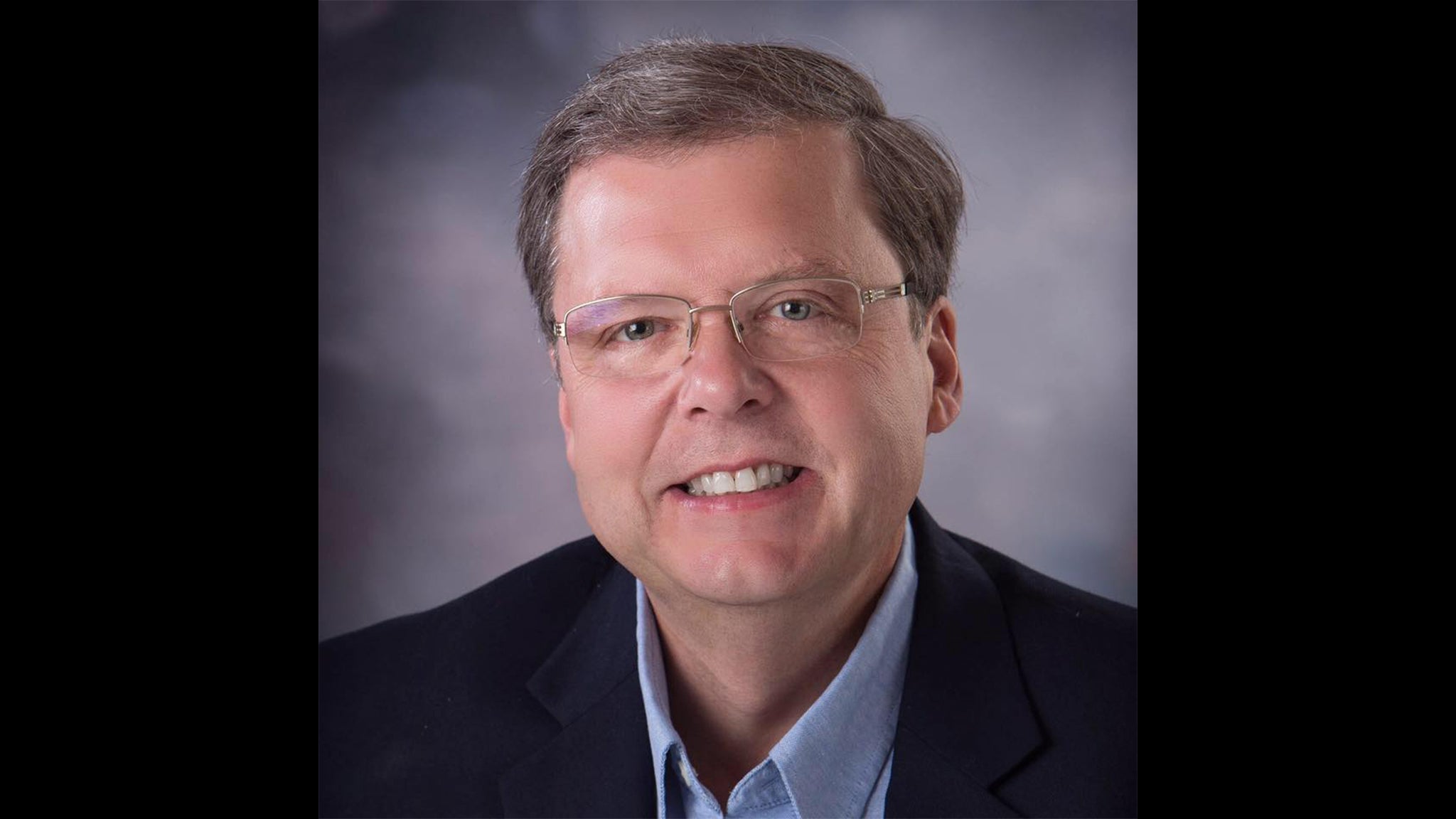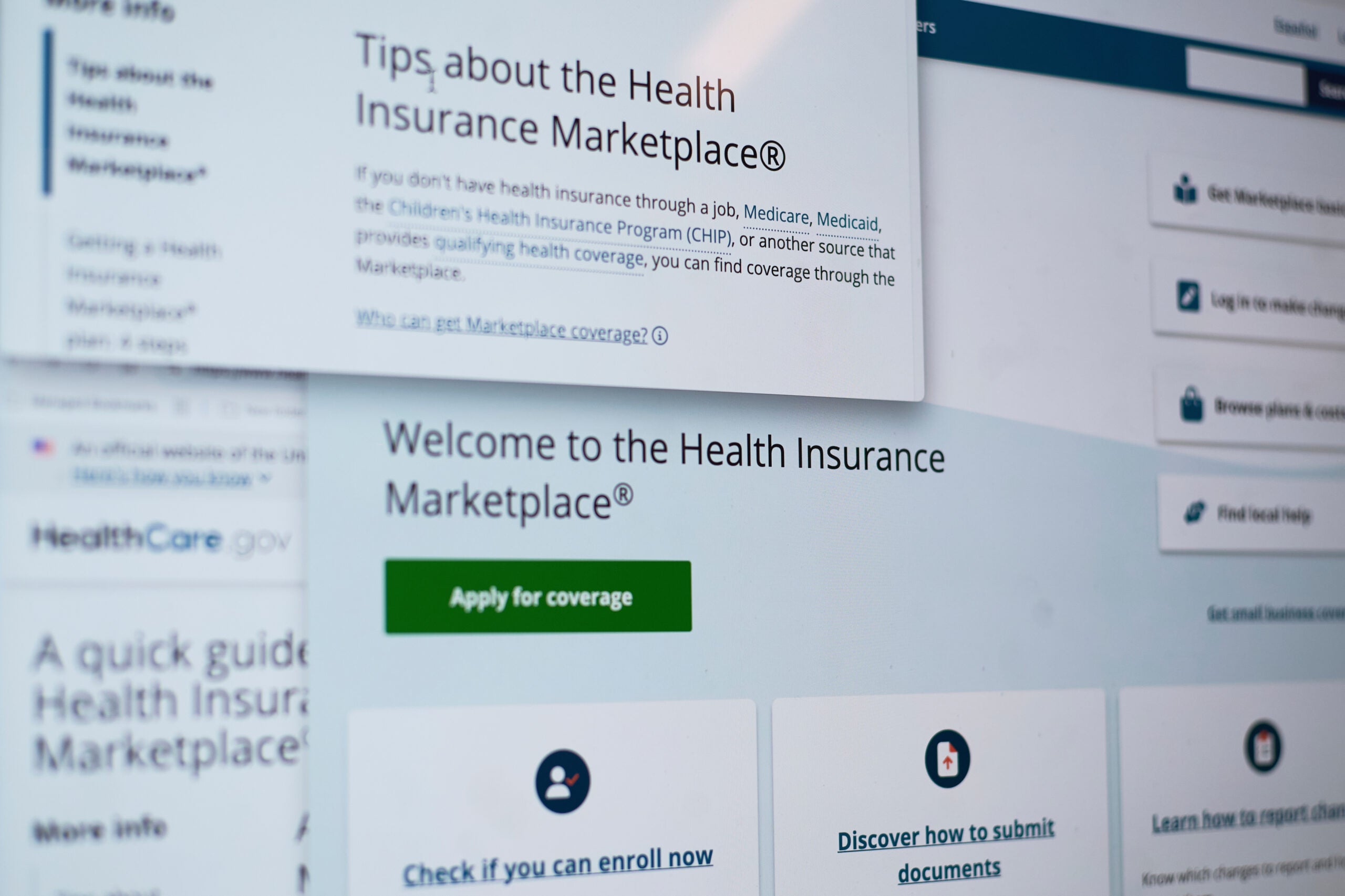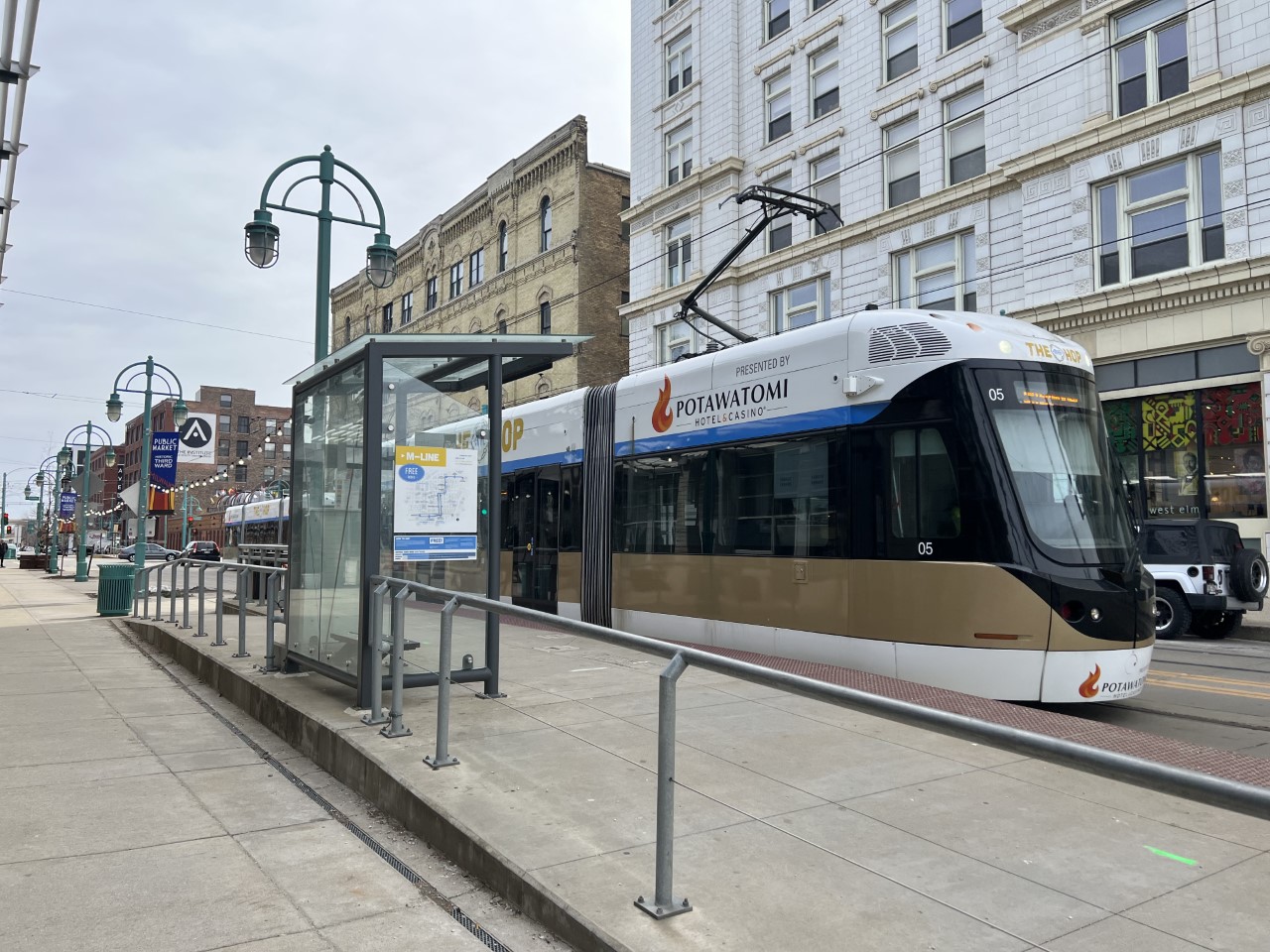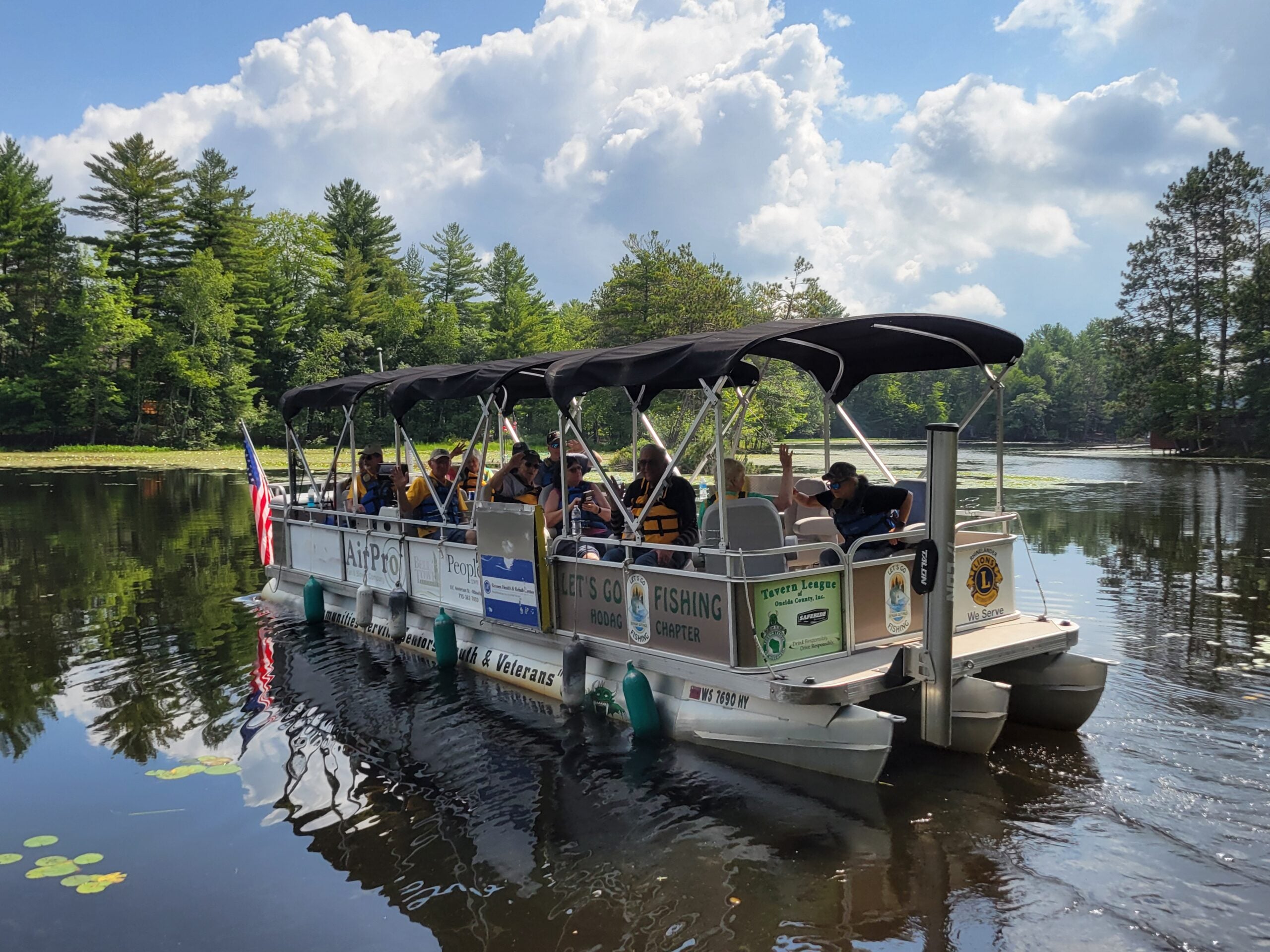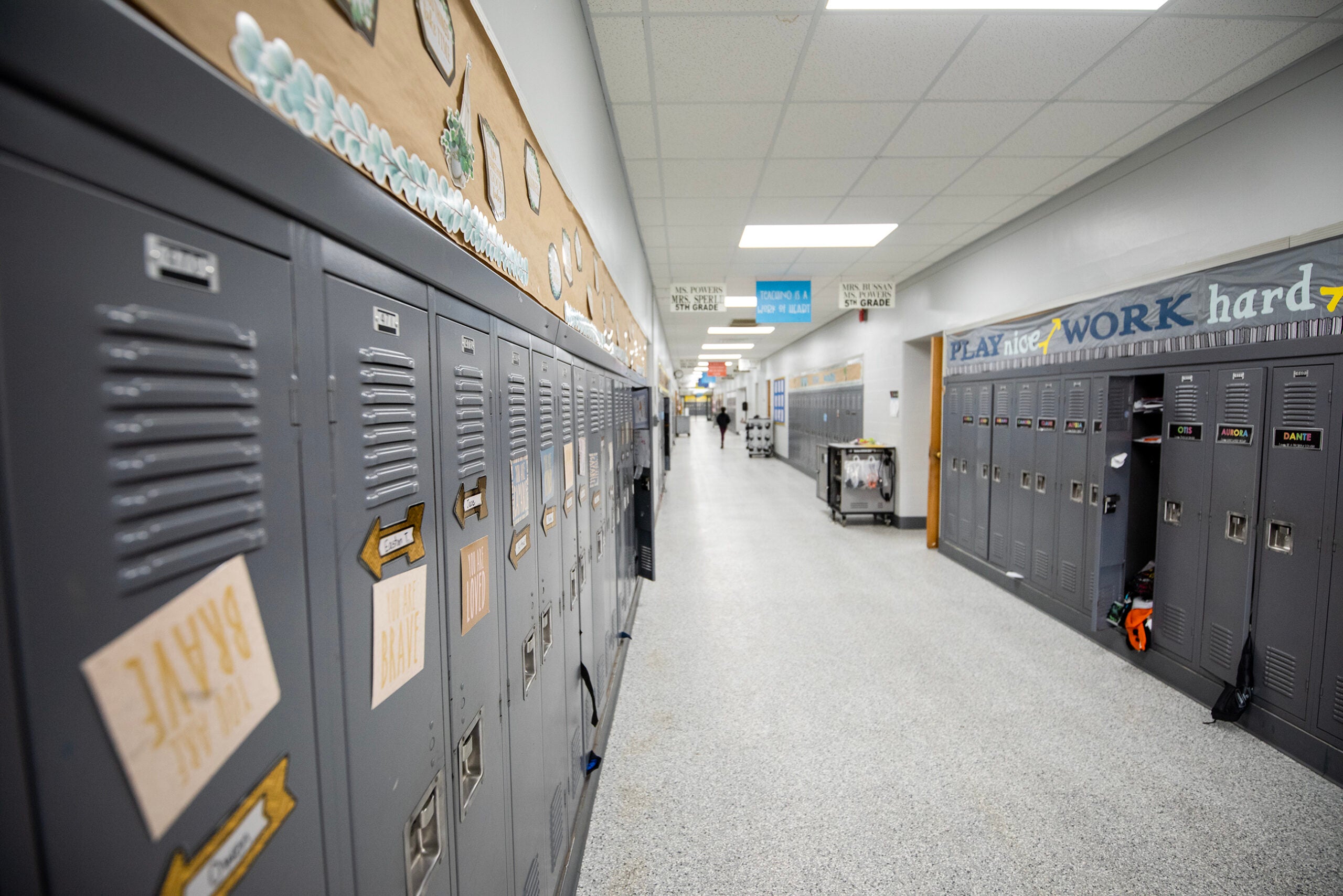First elected in 2017, Pat Snyder said he is the best candidate to represent Wisconsin’s 85th Assembly district because of his years of experience and track record of bipartisan cooperation.
Snyder said he is carefully considering the idea of expanding Medicaid, will try again to pass medical marijuana legislation and will reexamine Wisconsin’s tax brackets if he is reelected in November.
In a conversation with WPR’s Shereen Siewert on “Morning Edition, the Republican candidate pointed to his past successes in working with Democrats to pass key legislation.
News with a little more humanity
WPR’s “Wisconsin Today” newsletter keeps you connected to the state you love without feeling overwhelmed. No paywall. No agenda. No corporate filter.
“I have worked across the aisle,” Snyder said. “I have a record of working with the governor on things. I think that experience and bringing the whole mission of what’s best for Wisconsin, that’s what I bring.”
Before taking office Snyder was a congressional staffer for Republican Congressman Sean Duffy and a longtime radio host for WSAU. As he seeks a fifth term, Snyder faces a challenger in Democrat Yee Leng Xiong. The district was redrawn in 2023 and now encompasses Wausau and Weston, eliminating some Marathon County communities.
This interview has been edited for clarity and brevity.
Shereen Siewert: During your time in office, what do you consider your greatest accomplishment?
Pat Snyder: There have been a few of those, starting with being co-chair of the Assembly Speaker’s Task Force on Foster Care and getting 13 bills signed into law.
One bill allows social services to place children with a family that is close to the children, so the trauma of being removed from the home isn’t as great.
And I think to the bill that we were able to get in last year at the wire was the Victim of Crimes Act, which gives money to at least get us through to see what the federal people do with domestic abuse victims as well, such as The Women’s Community and child advocacy center that do the forensic interviews of kids who are being abused themselves. Those are big ones.
I think helping get the money needed for a forensic regional science center at Northcentral Technical College will help cut down the time to have autopsies done, which are in Madison and Milwaukee now. The northern counties will have a place right here in Wausau for that soon.
I was very lucky to get seven bills signed into law in the last session alone and to do that you have to have bipartisan cooperation. I guess that’s one of my biggest accomplishments, that I do have a lot of friends on the other side of the aisle, and we do work well together and collaborate on many bills.
SS: What has been the greatest challenge for you?
PS: The greatest challenge sometimes is being able to convince my own side to go a little further than they want to.
I know that we were trying to get the medical marijuana through and that’s been kind of a challenge on our side as well. I’ve been at the door and have been told already by a few people to try it again.
I think some of the tax cuts where we tried to get money back for people. It’s a little frustrating having that vetoed. I thought that’s what the governor wanted, and he still vetoed it. So that’s a little frustrating, but otherwise what’s most frustrating for people is that we do still move kind of slow.
SS: If you’re reelected, how will you address the current budget challenges in Wisconsin?
PS: We have to get the money back into the people’s pockets. I think in a lot of the inflationary situations, the federal government will have to step in and try to correct it.
But here in the state, I still think we need to come back to look at our tax brackets. For Michigan and Illinois, their top tax bracket is below 5 percent and ours is still up at 7.25. I think that’s tough on business, tough on the people and taxpayers here in the state of Wisconsin, and I do think we need to take a look and try to match Illinois and Michigan. Those states compete with us for keeping businesses here.
I want to again address not taxing seniors’ pensions up to $70,000. I think we’re losing some people who go to the states with no income tax like Florida and Texas, where they’re staying six months and a day. We’re losing tax revenue as these people are leaving and then coming back here for the summers.
I think the best thing is to try to figure out ways to get some of the money back into our people’s hands and then help businesses by fixing our brackets so we can compete with Illinois and Michigan.
I know some people’s businesses are coming from Minnesota to Wisconsin because their taxes are a little heavy as well, so I think that’s an area we need to look at and see if we can work with the governor and come up with some kind of solution.
SS: A new report by the Wisconsin Policy Forum says Wisconsin would save $1.7 billion over two years by expanding Medicaid. Given these findings, would you support expanding BadgerCare for residents?
PS: Yes. That’s one we’re getting closer on every time. I know a lot of states, even Republican states, have done that. I would like to expand it if we can use it to reimburse and not expand government.
Let me give you an example of that. Some of the money that came in from the COVID dollars were used for jobs, like here in Wausau. They hired 12 firefighters with that COVID money. Now it’s running out. How will they fix that? That’s what I’m worried about for the state. If we expand it and we expand government and the money is used up, will we suddenly have to come in and raise our taxes to fill that need?
But I do like the idea of using the expanded Medicaid money to reimburse at higher rates for mental health and psychiatry and things like postpartum care. That’s been a little frustrating and we’ll readdress that again, coming up here in the next session.
SS: What is your No. 1 priority if you’re elected to another term?
PS: My No. 1 priority is to do whatever I can to get more things done.
Also, I do want to try to help the childcare situation. I do know Michigan has done something where they put $5 million into a fund that allows local in-home licensed daycares to take between $2,000 and $2,500 as a startup. That money we could give to those startups and help take some off of the waiting lists for the other daycares. Rep. Jill Billings and I are working on that.
Find all of WPR’s election coverage including presidential, congressional and legislative races at wpr.org/election 2024.

